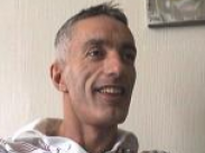Interview 10

Today, he has considerable support from friends and family, and takes a combination of anti-retroviral drugs with few side effects (abacavir, 3TC, Kaletra). He is now in good health except for occasional chest infections.
Irish gay male living in London. He originally went on combination therapies as part of a trial, and has suffered from PCP.
More about me...
Age at interview' 41
Age at diagnosis' 34
Sex'
Had real trouble taking his medication because of the problems he encountered.
Had real trouble taking his medication because of the problems he encountered.
It was sort of… it was a bit hard, eating at certain times and taking your tablets and having your tablets with you. And also I tend to do travelling quite a bit, so going to the States and going to places like that made it a bit harder.
How did you manage?
Occasionally I missed my dose, which then made it twice as hard because sort of the side-effects. If I miss one, my morning, and I'd just take it in the evening, my side effects tends to be not, to be stronger and more unpleasant. So you feel more ill, and then you think, well I'll just skip that, whatever. I have to work hard at taking my medication, because I'm quite easy to sort of… I can't be bothered today, or I haven't eaten enough. I'm rushing, or actually I didn't come home last night so they're not here.
Cos I know I have to do it and I should do it but it doesn't always mean that I do do it.
A doctor in Accident & Emergency, and a community dentist he had visited had seemed uninformed about HIV.
A doctor in Accident & Emergency, and a community dentist he had visited had seemed uninformed about HIV.
I went to the dentist and had an examination and he was sort of looking at my teeth and he said you know, 'Is there anything I need to know or whatever.' And I was quite open and I said, 'Yeah, I'm HIV positive, if this is a problem for you, tell me now rather than waste all our time.' And he sort of said, 'No.' But he stood ten steps back and he just got very uncomfortable.
And then he straight away told his dental nurse, who was actually very good and she said, 'No, HIV's not a problem, it's much easier to get hepatitis than all of this.' And I was very annoyed, I said, 'This conversation is between me and you. Not between you and your dental nurse. I needed to decide whether I was comfortable with you and you with me and I really believe you're not.' And he wasn't. And he more or less implied that he would prefer if I didn't come back. He didn't, what he said to me was he didn't have any patients who were HIV positive. And I said, 'No, that's not true, you might have patients that aren't telling you.'
I was in hospital for a week with a chest infection and was taken in by ambulance. And I' because if you know, you sort of know your own body and how you're feeling, well I think I do reasonably well. And you go through certain'. I get chest infections. So I know the routine procedures and how it's going to work and pan out, and if I do this now it will be better than if I leave it a day. So I was taken in by hospital, in by ambulance. And the on call doctor, whatever, in A&E, sort of said, 'Have you conditions or whatever, medication and that?' So I said, 'I'm HIV positive.' And his first words were, 'Oh my God.'
How HIV has changed the way he understands and manages his time.
How HIV has changed the way he understands and manages his time.
His male partner was deported and he felt it was difficult for others to understand his grief.
His male partner was deported and he felt it was difficult for others to understand his grief.
Because he didn't have a Visa. That was heart wrenching. I remember, it was the 26th September when he was flown back from Heathrow. And that was like, you know, it was like somebody had died. You just, I think I cried for days. And it was very difficult because nobody understood.
Why didn't they understand?
I think because they didn't give' people don't think of gay relationships as having the same sort of mental process as a straight relationship. We don't have feelings, you can meet somebody else tomorrow or whatever. But this was a major part of my life. It had just been totally disrupted and ended and gone. And your family don't understand because they don't really want to talk about it. If it was my sister's husband that had left, everybody would all mother her, cuddle up and we can get through this and whatever. But you are very much left on your own. I think people don't know how to react or what they should say or not say so better off just to leave you alone. So that was pretty horrendous.

